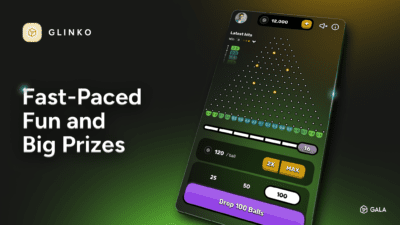Remember when stuff didn’t have microchips in it? Well, that time has passed.
Today we’re absolutely awash in connected gadgets and gear throughout our homes. Think about how many devices you have connected to your WiFi… phone, computer, laptop. Did you remember to count the TV? What about gaming consoles? Security cameras and printers? Do you have smart appliances like a washer/dryer combo or a smart fridge? Smart lights? Yeah… it’s a lot of devices.
This saturation in “smart” technology is only going to get more intense over the next decades. With the growing ubiquity of AI, it’s likely that more of this will be automated soon to some level.
It’s not only that your WiFi is woefully prepared to handle all these devices (it is), but also that your WiFi is just a normal network. It can’t logically prioritize tasks… that’s all on the devices themselves. As more devices come around, that’ll get harder to manage. Luckily there’s a tool that fits the smart home of the future perfectly — blockchain!
The Smart Home of the Future
Forgive us if we slip into sci fi a bit here, but look around you. Even compared to 10 years ago, we are living in science fiction today.
Imagine what the next generation of in-home tech looks like. Will your stove automatically start dinner for you? Will your bookshelf recommend reading material based on your mood? Will your bed retract into the wall if you oversleep like on The Fifth Element? (Notably, I’ve badly wanted this bed-based tech since I was a child.)
There’s already tons of automation in smart homes. People regularly use phone apps to automate feeding pets, time lights or brew coffee first thing in the morning. People really like having stuff done for them, so it’s probably going to get more prevalent to automate household activities.
Will you be able to automate through a simple app when a robot arm is cooking your dinner for you? When your smart home is required to decide whether people can enter your house or not, is that something you really want on a phone app? Wi-fi and apps are simply not suited to this task.
The Internet of Things
The Internet of Things (IoT) refers to a network consisting primarily of independent devices that can communicate and transmit data to other devices. That’s pretty much exactly what your growingly online smart home is.
An internet of things is distinct from a traditional network, in that devices on an IoT typically receive input through sensors, cameras or external controls rather than a direct interface like a computer would. These are devices that serve functions and typically require connectivity and external information to fill those functions.
Our technology hasn’t quite grown into a fully integrated smart home, interconnected wall to wall… yet. We like technology that makes our lives easier, however, so more and more tools will probably be coming to your home before too long.
With AI growing more powerful by the day, it’s probably fair to say that these devices throughout your home will work together more fluidly in the future. This means more information exchanged between them… and more hurdles for security and efficiency.
Securing a Smart Home
As devices around your home work more intelligently and autonomously, your home network is going to start carrying a lot more sensitive information. Let’s say that your alarm knows when the kids have to be to school, so it wakes you up with enough time to get everyone ready. Your coffee is automatically brewed before you ever get to the kitchen, and your phone readily displays the weather two towns over since it knows you have to run to the carpet store this afternoon.
Your smart devices just tapped into a wealth of information about you and your daily routine to compute your likely schedule for the day. If this is stored as traditional data on your network, anyone who compromises your security would know the following:
- Where your kids go to school
- When you leave in the morning and wake up
- Where you’re going this afternoon and how long you’ll be gone
When you start thinking about the kind of huge data sets that AI needs to make decisions, there’s an absolute pandora’s box of information that a personal AI assistant would need to coordinate your home life.
It’s scary enough to think a hacker could know when you’ll be coming and going, but data brokers are also drooling over all this extra demographic information. If your AI can predict what you will do and when, they can do the same with the same amount of data.
This is where a private blockchain comes into play. A private blockchain can logically triage tasks from your personal internet of things, while still maintaining robust encryption in the blocks themselves.
Many companies have switched over to internal, private, permissioned blockchains for their sensitive data. With the ease of creating custom environments on GalaChain, this could be done for personal use as well.
Block Houses
The smart home of tomorrow is built on-chain.
On a private blockchain, each of your devices could function as a peer with its own credentials and permissions. They read information they need from blocks created previously in the channel, and any transactions they submit to a new block are verified through the ordering service.
A household AI would act as the approver node for transactions, but a user interface would also have permissions so that you could view the chain as you want. All the actions and data of your devices stay on the private blockchain, not only protected by the security of your network but also gated behind GalaChain’s asynchronous encryption.
This essentially provides your house its own private network. You could go ahead using your direct input devices directly on your main network, but any autonomous activities taken by your kit would process through your private homechain.
Like we said, a fully automated homelife may be in the future… but not that distant of a future. We need to start thinking about how to resolve these issues now, and blockchain is the perfect solution for these kinds of private IoTs.
The tools of tomorrow are built today, and tomorrow’s coming up very, very soon.


